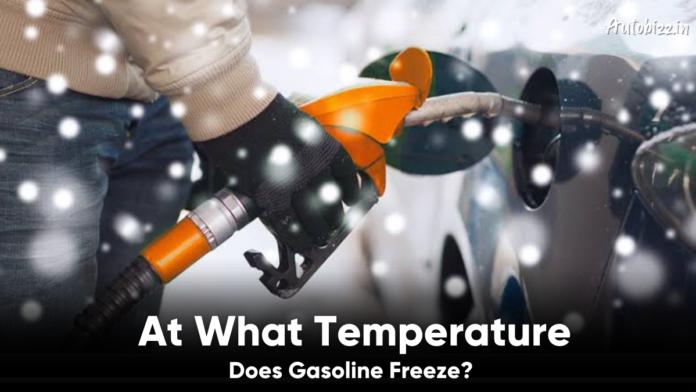Learning how to maintain an automobile might be the difference between arriving at your destination and being stranded in a broken-down vehicle.
Highlights
- Preventing cold weather gas problems
- Tips for storing gasoline
- Cold weather is responsible for the freezing of gas
Gasoline is mostly used to power automobiles. Motor gasoline is produced at refineries and dispensing facilities for sale at retail gas stations.
Apart from the many types of motor gasoline, the formulation of gasoline might change based on where it is marketed or the season. Some rural regions utilise gasoline to minimise specific discharges, and the formula changes depending on the season.
How to Prevent Cold-Weather Gas Problems?
Even if you reside in a location with exceptionally harsh winters and ice temperatures, you should have practically no difficulties with your fuel lines.
The contemporary chemical industry should be commended for creating gases with particular ingredients that prevent gelation. By the way, this gas is often offered in cooler climates.
The modern chemical industry should be appreciated for producing gases containing special additives that discourage gelation. By the way, this gas is usually sold in colder parts of the world.
Following are some tips that help to prevent gas problems in cold weather:
Preparing your vehicle for usage by warming it up. Simply start your engine and let it idle for a few minutes. It also reduces the likelihood of halting, spraying, and other issues.
To avoid fuel remaining in the tank for too long, drive your car or truck frequently.
Even a simple stroll around the block will deplete your fuel supply. Just make sure you’re not driving in a garage or in an enclosed location with a frozen exhaust.
Maintain a gasoline tank that is at least a quarter full, ideally half full. A tiny amount of liquid is equivalent to a great quantity of cold. It also prevents you from becoming stranded if you use more gas than the metre suggests.
Adding a stabilizer to your gas tank prevents fuel from clumping.
How is Cold Weather Responsible for the Gas Problem?
Even while having ice cubes should not be an issue for you, you may encounter other challenges. Although this is a greater issue with gasoline than with gas (which is why cold-weather lubricants are on sale), denser gas makes your fuel pump work harder, shortening its life.
The diesel engine freezes at greater temperatures, which is why there is more antifreeze in it, and truckers frequently leave the engine idle on cold days. At low enough temperatures, the gas can split and create a gel-like diesel. The more frequently this is, the colder the contact fluid is (think gasoline lines to the fuel tank). Also, because of the higher viscosity, certain fuel gauges may indicate more gasoline.
Any water in your fuel system, including steam or condensate, might freeze and block your fuel lines, preventing enough air from reaching your combustion chambers.
Prevention of Cold Weather Problems
Even if you live in a cold area, you are unlikely to have a blues winter because to the amenities given by contemporary technology. The persistent cold weather issues can be resolved by taking a few simple procedures. Additives to prevent coagulation are commonly used in gas sold in colder areas of the world. This technology safeguards customers from problems and prevents pump malfunctions.
Process of Storing Gasoline:
If you’re saving fuel on a snowballer, you might be wondering what to do with gas cans and storage. Unless your garage or shed is heated, it’s not immune to the frigid temperatures outside. You don’t want to store gas in your home even if it’s hot inside.
Smoke may cause gasoline to burn if it ignites.
Instead, a fuel stabiliser is used to keep the gas from splitting into useless components. It can also prevent your gasoline from expiring before its time, which is another issue with storage. If you’re worried about your gas freezing over the cold, it’ll assist. Keep a sufficient amount of gas in your tank to avoid accidents and to guarantee that you can go about in the case of a fuel shortage.
To avoid most gas issues, use gasoline additives and maintain good maintenance habits. Vehicle maintenance and stabilisation are low-cost ways to avoid costly problems. AutoZone has a variety of goods to help you get through the winter months.
Should choose a fuel stabiliser and place it in the gas can to keep the gas from splitting into useless components. It will also assist prevent your gasoline from going over its expiration date, which is a major issue that makes storage difficult.
It would also assist if you remembered to keep a sufficient amount of gas in your tank to avoid any complications.







